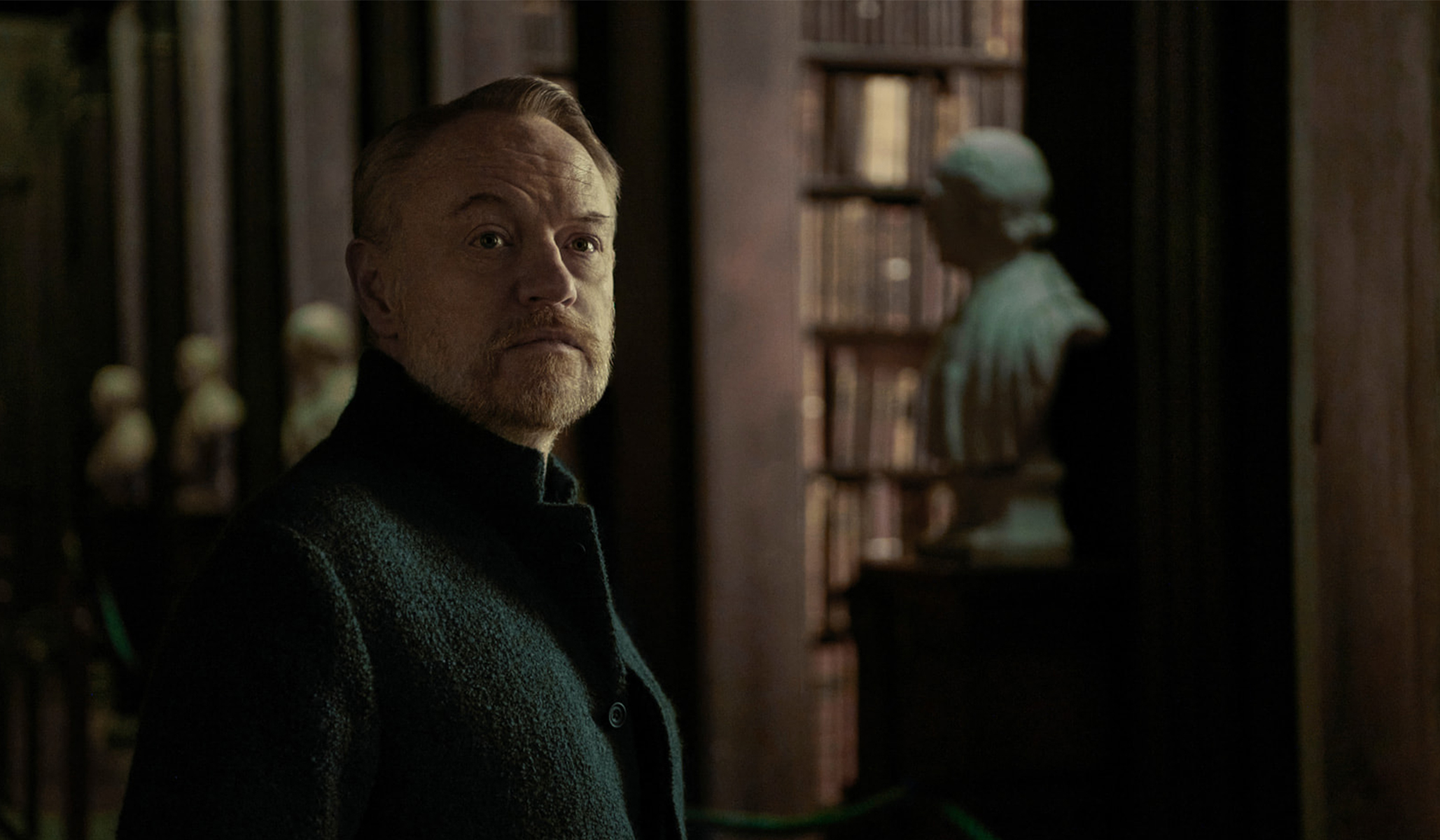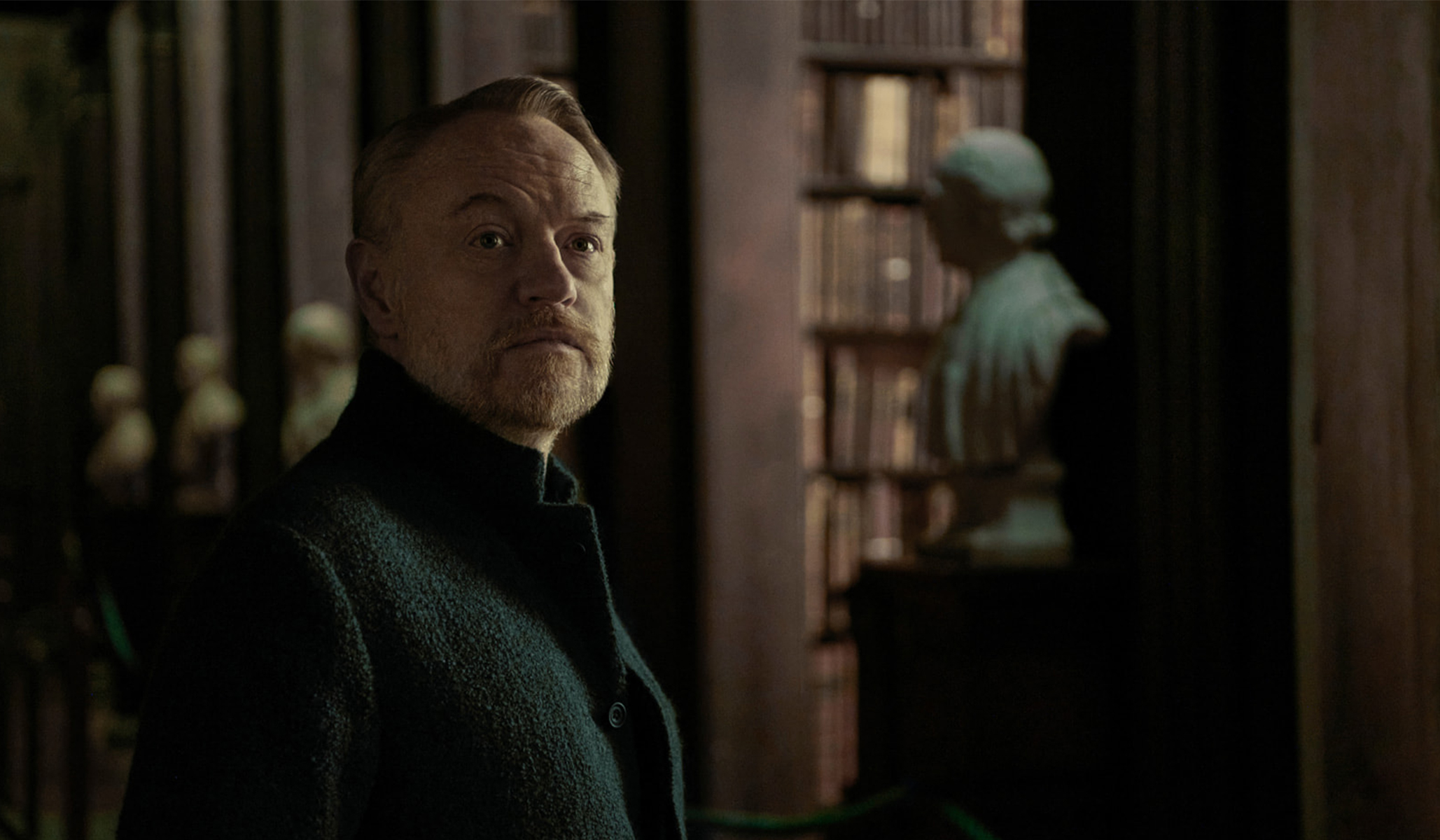
Last Friday, an adaptation of Isaac Asimov’s novel Foundation premiered on Apple TV+. The Asimov series which the first book began is a staple of the Golden Age of Science Fiction. As I described it last year:
The Foundation series takes place thousands of years in the future. Inspired by Edward Gibbons’s The Rise and Fall of the Roman Empire, Asimov, one of the most famous authors of the so-called Golden Age of Science Fiction, imagined a universe full of human settlement and dominated by a Galactic Empire centered on Trantor, a high-tech, planet-sized, megacity version of Rome. Despite presiding over billions and incubating technological achievements of which we today can only dream, this empire is about to collapse.
But only one man is confident of this: Hari Seldon. Seldon has invented psychohistory, defined in the first novel as “that branch of mathematics which deals with the reactions of human conglomerates to fixed social and economic stimuli.” Through psychohistory, Seldon can essentially predict the future of mankind; paradoxically, the more variables involved in his analyses, the better. And according to his calculations, it is too late to save the empire, but it is not too late to “shorten the interregnum which will follow,” “to reduce the duration of anarchy to a single millennium” instead of the 30,000-year Dark Age that will ensue if he does nothing. To this end, he establishes the eponymous Foundation (actually, two, though one is a secret) on a distant planet full of mankind’s best minds, ostensibly to preserve knowledge but actually to direct history toward its own establishment as the germ of a new empire. He does all this shortly before his own death, but after recording a series of messages to this elect for posterity, to be released at precise intervals of crises that he predicted.
Given that description, you might not be surprised to learn that technocratic left-wing economist Paul Krugman is a fan of Foundation. But the Foundation TV adaptation has found a somewhat unexpected fan in Rod Dreher, senior editor at The American Conservative and author of several books, though the most relevant here is The Benedict Option. In that 2017 work, Dreher argued that our culture has been fundamentally lost for Christianity, and that efforts at large-scale reclamation of it on this basis are doomed to failure. Christianity’s future in the West, he believes, depends on people who act in recognition of this supposed crisis and prepare for it, much like the monastic orders that sprang up in the wake of the collapse of the Western Roman Empire, rather than on those who try to salvage what he considers already doomed.
So, naturally, Dreher said he found parallels between Foundation and his work:
The Ben Op tie-in, obviously, is that Hari Seldon (played by Jared Harris in the new series) foresees the Empire falling, and wants to preserve its knowledge in these Foundations settlements — scientific monasteries. In the show, the Emperors (they are a triad) do not want to hear this bad news, because they are correctly afraid that it would demoralize the imperial population. Seldon and his protege barely escape with their lives.
On one level, this comparison is inapt. In the first place, the devout Dreher should find the inherent worldview of the Foundation novels (I’ve not yet watched the series) overly technocratic and scientistic. The Empire of Asimov’s Foundation isn’t identified as very religious or moral, but neither, really, are the Foundations Seldon constructs in the books. Their chief asset comes from preserving and, when necessary, weaponizing scientific knowledge.
The main nod to religiosity in the first Foundation novel is a religion literally called Scientism that members of the Foundation have created to maintain power, convincing subject populations to regard the scientific know-how they have preserved as divine (Arthur C. Clarke might have something to say about that). This religion ends up carrying the day because, and here I quote directly from the book, “it is the chief characteristic of the religion of science that it works.” This is a natural outgrowth of the book’s spiritually sterile worldview.
What the two works have in common, however, is a troubling, enfeebling worldview that deserves some scrutiny. Foundation is rooted in the mathematical certainty of collapse, as predicted by psychohistory. By invoking this comparison, Dreher presumably places himself in the Seldon role, granting an ironclad probability to his own belief that “we are headed for a very nasty crash, and that it’s probably too late to stop it.” I don’t want to underestimate the challenges we face today, nor do I wish to downplay the need for serious spiritual and political renewal. But it does us no good to treat doom as final; prophecies of American decline are almost as old as America itself. Dreher claims not to want this to be true, of course; he is simply stating it as an obvious fact: “I’m not saying what I think should happen; I’m saying what I think is going to happen, at least in the West,” he writes. I think it’s possible, though, that Dreher is somewhat collapsing the is-ought distinction here. Not that he wants American civilization to be in a state of Roman collapse; but rather, he may find useful clarity and maybe even heroic possibilities in something like such dire straits.
But that is not a situation we want ourselves to be in. It is, at any rate, not one I am prepared to believe we are in yet, as much as the abstract chatter about decline and decadence carries in some of the more hyperbolic corners of the Internet. Dreher, to his credit, argues, contrary to the view of certain “politically engaged Christian conservatives,” it is not the case that he is “discouraging believers from political involvement.” At the very least, “we need to stay involved politically, if only to protect the liberty of our churches and institutions to do what they are supposed to do.” I take Dreher at his word that he is not counseling total inaction. But I do wonder if he is counseling the kind of action, and the level of engagement, that becomes a self-fulfilling prophecy. Thinking we’re doomed, and engaging politically on that assumption, can lead to doom, whether intentionally or not; you end up self-selecting for action and association on an assumption of decline that precludes you from doing things that could have arrested that decline.
This points to another weakness in their mutual narrative framework: It underplays the role of individual agency. This is well-demonstrated by the saga of the Mule. I don’t know if/when the Apple TV series will adapt this story; it is, to me, the most important in the first three novels of Asimov’s series. The Mule is a powerful telepath who dramatically upsets Hari Seldon’s predictions, establishing an empire of his own and nearly destroying Seldon’s work completely. How did this happen? Well, even though psychohistory can predict the movement of empires, it founders upon individuals: It is a “statistical science” and “cannot predict the future of one man with any accuracy.” In keeping with the overall Asimovian faith in a kind of hyper-technocracy, the Mule is eventually, of course, defeated. But the idea that individuals can shape the course of history is a tremendous problem for psychohistory, even in analogical form.
Why? Because ours remains a society largely dependent on individual action. As a result, certainty of anything is elusive in human affairs; things often only look inevitable in hindsight. There is both promise and peril to this. The promise comes from the scope for individual and large-scale action to do something about the things Dreher is worried about, many of which vex me as well. The peril is obvious, though it becomes even more dire if we enter the kind of situation Dreher imagines. Unlike in Foundation, no mathematical certainty would govern either the duration of what bad things might follow civilization’s collapse, or the prospects of those hoping to endure them. Such a scenario would, however, be full of Mules, of unpredictable scenarios and misfortune — the sort of thing that has beset mankind for all its history. And also unlike in Foundation, there would be no guarantee of a scientia ex machina to save us from it. Even if you believe that preparing for such an eventuality is worth doing, you should do so knowing full well the risks it entails. It is far more frightening than even the greatest of the challenges we face today.
At any rate, it seems like a much better idea to work, as much as possible, toward the restoration and recovery of what we have or once had than to assume it is all about to collapse and hope for the best thereafter. The most heroic thing you can do right now might not be to wax apocalyptic and send yourself and others into further despair, but rather to live your life fully and virtuously, in both its private and public spheres. Dreher might argue that what he wants to do is not that much different from this. And to be fair, I don’t have an equation to back up what I’m saying. Though neither does Rod Dreher.

